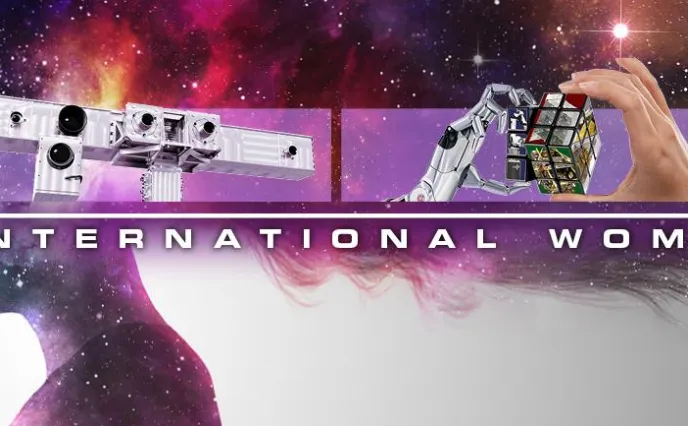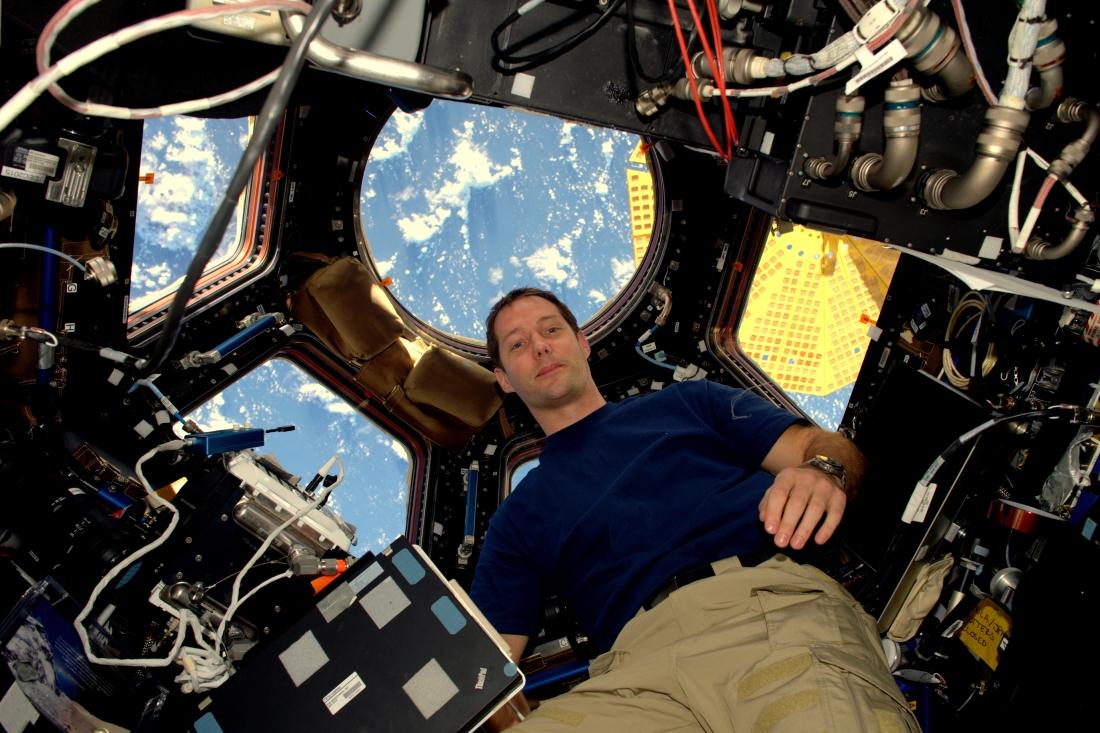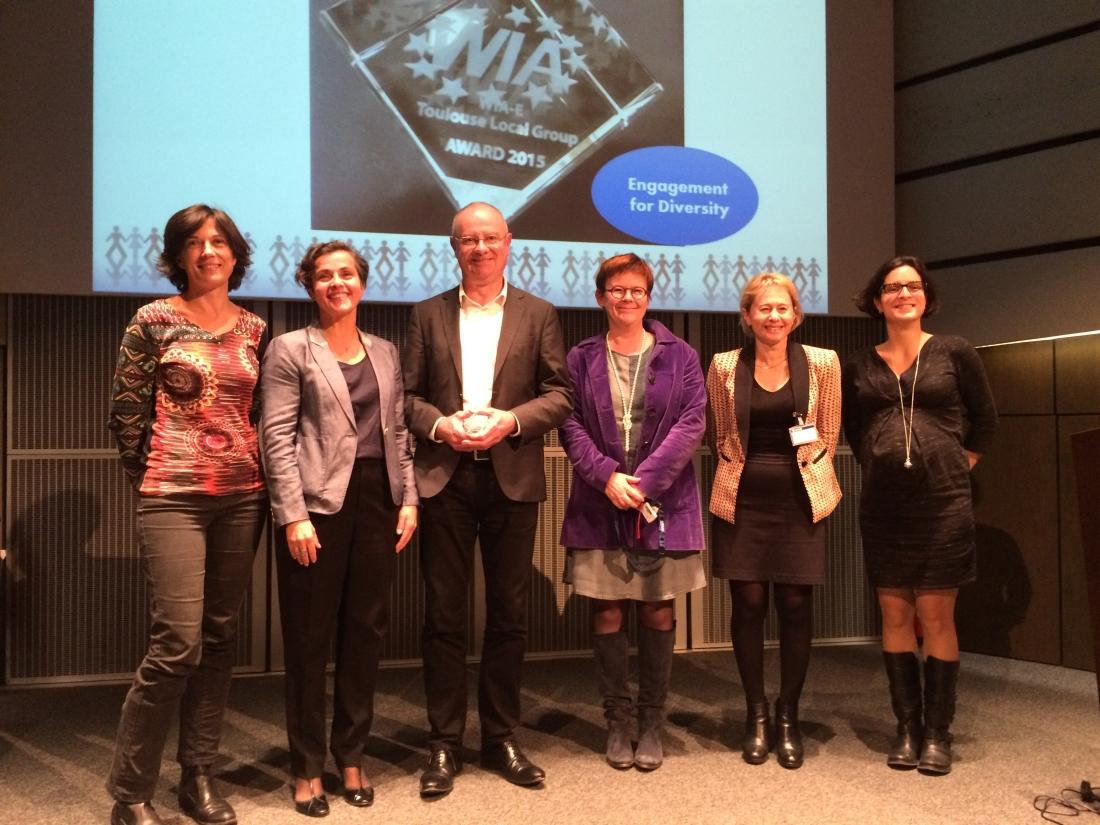International Women’s Day, a man’s contribution: Bruno Wiart

However, the paradigm is changing. Space has been in the news lately, with endeavors such as the Rosetta comet mission, ExoMars and the superb photographs from the International Space Station by French astronaut Thomas Pesquet, all helping to alert the general public to the infinite possibilities of space. The upshot is that an increasing number of high school students, and especially girls, are now discovering a vocation for careers in science, technology, engineering and mathematics (STEM).

Thales Alenia Space has undertaken a proactive approach to recruiting more women in recent years – and one of the spearheads of this movement is Bruno Wiart, head of the Software Solutions department at Thales Alenia Space France. He has always been committed to fostering greater diversity and gender equality and, with International Women’s Day 2017 just around the corner, we asked Bruno to share his insights.
Space Q&A: Thales Alenia Space has actively promoted diversity and gender equality in its recruitment drives over the past few years. How do you explain the fact that women account for such a small percentage of engineers in industry?
B.W: The engineering profession is seen – often very incorrectly – as a purely technical field, and this entails a number of stereotypes. It is considered a rather unattractive profession for women. According to engineering schools, their ratio of women students ranges from 7 to 14%, sometimes a bit more. The result is that industrial companies receive few job applications from female engineers.
Space Q&A: So, you’ve been in favor of diversity and gender equality starting in nursery school, right?
B.W: You could put it like that! (laughs). Before joining Thales Alenia Space, I worked for Thales in Australia, on Air Traffic Management (ATM). I was in charge of the engineering department. At the time, we were fortunate enough to win contract after contract. At the beginning I headed a team of 80 – and after two years, there were 230 of us. In the meantime, we had to contend with a workload that we couldn’t completely meet locally. So we had to hire new staff, especially from outside the country, and we subcontracted massively in several countries. To meet our commitments, we set up a brand new managerial and organizational structure. At one point I realized that my department had no fewer than 43 different nationalities, with a high proportion of women. Through my own experience, I can tell you that diversity in the workplace, and more specifically gender equality, works! It’s extremely enriching at all levels.
Space Q&A: What have diversity and gender equality contributed to your current organization?
B.W: Men and women see the same thing from different perspectives. I am convinced that you shouldn’t put together all-men or all-women teams. On the contrary, a mixed team enhances efficiency, not to mention wellbeing at work. There will necessarily be complementary contributions that enable team members to understand and overcome difficulties by working together. Gender equality has a very positive influence on the group dynamic. Taking this even further, the diversity of people selected (in terms of nationalities, career paths, foreign experience, personality, etc.) always proves beneficial to any type of organization. After all, isn’t brainpower to be found everywhere in the world?
Space Q&A: From a management standpoint, how do you support diversity?
B.W: Diversity is supported by a managerial model that is no longer compatible with the hierarchical model we inherited, where companies were created by men, for men. Today, we’re shifting to a model that is more focused on networking skills, intercultural or inter-generational management in a sense. When you recruit both juniors and seniors, when you have different nationalities, that means you are really calling into question conventional managerial arrangements. This transformation will change the very culture of the organization. Banking on managerial innovation [characterized by greater transparency, more collaboration and autonomy, greater empowerment and trust], we can save time and enhance agility… and therefore improve professional efficiency.
Space Q&A: How many women have you hired in Thales Alenia Space’s Software Solutions department?

B.W: Since being created in early 2013, Thales Alenia Space France’s Software Solutions department has hired about 180 new employees, 37% women. Today, some of them are now project or department managers. They have all taken on a full-fledged role in our department, and greatly contribute to an area (software engineering) that may seem highly technical. [Thales Alenia Space as a whole had 600 new hires in 2016 and now has 7,980 employees.] Gender equality and diversity clearly offer a working environment that is particularly favorable to innovation – something our company needs to continue its own transformation.
I would summarize diversity as follows “One plus one equals more than two!”
Bruno Wiart has always supported gender equality, and women recognize his efforts. In December 2015, he received the “Engagement for Diversity” award from the Women in Aerospace (WIA) association for his actions in favor of gender equality and diversity.
Photos copyrights:
First artistic view: © Thales Aenia Space/Briot
Thomas Pesquet inside La Cupola: © ESA/NASA
Group picture: © Women In Aerospace

